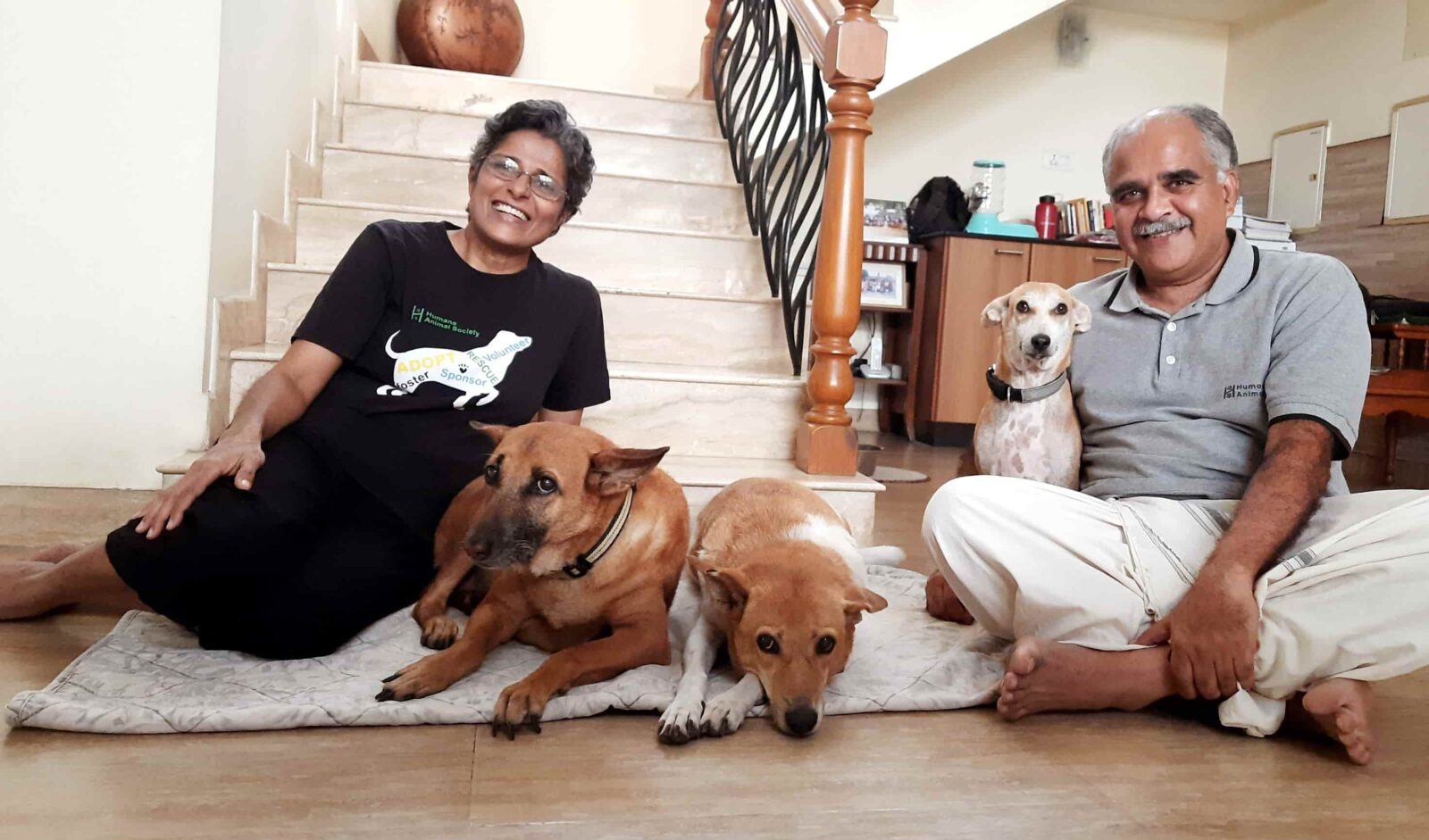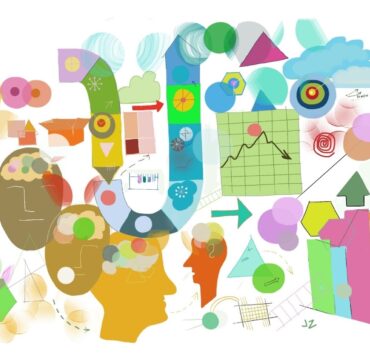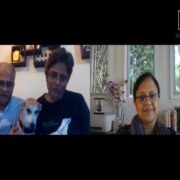IN THE MIDDLE OF A LONG CONVERSATION, WITHOUT UTTERING A WORD – I’M CHLOE.

Jazeela Sherif is an engineer turned CFO, a painter and…
Caught in the middle of a long conversation, Chloe didn’t make even the feeblest growling for nearly two hours. It looked as if she understood the importance of the topic being discussed. Or, may be, she knew that it is good manners to be listening when others talk, something that is difficult for us even in presidential debates these days. Chloe looked quite civilized and adapted perfectly to a different environment (see video).
Yet, are we human beings superior to these animals, to dictate their ways of living? Perhaps, not. Anything in this big wide world is their space too, leaving aside the localized territorial instincts that many species possess. In fact, “every species has a right on this earth”, as the renowned Malayalam author Vaikom Muhammad Basheer argued in his story ‘The Inheritors of the Earth’, written way back in the 1970s.
We, human beings, have simply monopolized substantial space, leaving very little for the rest of the species to survive, let alone enjoying their ownership and freedom to live the way they want. Perhaps, the only exception in the recent history would be a short period in the second quarter of 2020, when almost the entire mankind was in detention in their own homes. Birds of all kinds appeared in urban and semi-urban areas and feasted like crazy. A few wild animals ventured to stroll along the city streets. For a while, they would have felt that this world is theirs too.
Lead Digest had the pleasure to interview a couple who thinks that ethics from the point of view of human definition lacks the foregoing insight. Dr. Mini Vasudevan and Dr Madhu Ganesh, both engineers, based at Coimbatore are on a life mission of improving the lives of animals on our streets. Mini, who holds fifteen patents to her credit, left her job at the peak of a high-flying career to dedicate all her time to animal welfare, ably supported by her spouse, Madhu. Both Mini and Madhu earned their PhD from the University of Texas at Arlington and are co-founders of the Coimbatore based NGO, Humane Animal Society (HAS).
Mini functions as the managing trustee of HAS, while Madhu is a visiting professor at P.S.G College of Technology. Madhu is also a consultant to many companies engaged in waste to energy, refrigeration, air conditioning and compressed air treatment . In 2019, Mini Vasudevan received the Nari Shakti Puraskar, the highest civilian honor for women in India, given by the Ministry of Women and Child Development, in recognition of her work in animal welfare.
With Mini, an erstwhile general manager at Ericsson at the helm of things, the Humane Animal society at Coimbatore in India is run like a professional organization and employs scientific and system-oriented approach in providing support and care for abandoned pets, street dogs and injured animals. HAS has facilities for surgeries, treatment for diseases and rehabilitation using prostheses. Unlike related government agencies, their activities are well structured and documented, capturing and storing useful data for its operations and analytics. Their larger objective is to create an environment for peaceful coexistence of humans and animals in the long run.
Mini’s professional background has helped the management of HAS’s operations to go beyond the paradigm of charity work as she found herself in the thick of it, a major reason why she had to abandon her corporate life.
HAS steps in to save animals in distress, provide care and find homes for them in the best possible way, besides creating public awareness on these aspects. It is a huge responsibility that they shoulder, something to which the government agencies have barely paid attention to, in spite of having elaborate laws on animal welfare in the country. There are many interdependent factors in this case, especially in a country where procedure for animal adoption, periodic vaccination, registration of pet animals and their care, documentation of diseases and causes are all still in a rudimentary stage when it comes to implementation.
“Animal birth control, known in short as ABC is the key to control the population of the street animals and related risks faced by people”, says Mini. Reflecting on the humane approach to animals, Madhu points out that most of us see street dogs or abandoned and injured animals as intruders into our environment, but fail to own up the responsibility of making their lives miserable due to our greed that transcends every aspect of life on earth. He remembered Gandhi’s words that the earth provides enough to satisfy every man’s need but not every man’s greed.
This human-centered pervasiveness, he says, is visible even in almost all of the so-called animal welfare services that we bother to provide. For instance, in the wider veterinary services network of the country, the focus is largely on artificial insemination of animals and their healthcare for yield management, since they are commercially important to human beings. Other animals, who are considered friends of human beings and are in distress, are at the mercy of organizations like HAS.
After more than a decade of dedicated service towards animal welfare, both Mini and Madhu had a lot to say about how we could strike a balance on the dilemma of ‘whose survival matters’ and how a sustainable coexistence is possible, as you can hear from the interview with them here on LEAD Digest homepage, under the section TALK DIRECT. Well, don’t forget to pay some attention to the peaceful and adorable Chloe!
What's Your Reaction?
Jazeela Sherif is an engineer turned CFO, a painter and a trained singer. Besides engineering, she holds an M.B.A, PhD, and an MSc in Financial Engineering.




